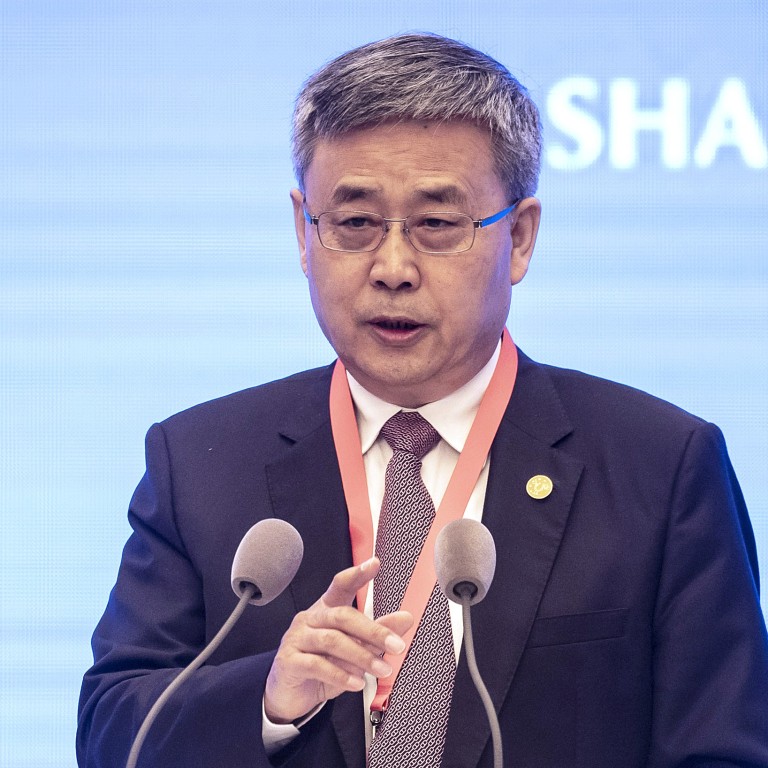
US runs risk of backfire with trade war tariffs, Chinese banking chief warns
- Central bank’s top party official insists that American duties will have minor impact on his country’s economy
Just days before the heads of the world’s two biggest economies are expected to meet, China’s top financial regulator has played down the impact of US tariffs on the Chinese economy, saying it was “very limited” and could even backfire on the United States.
Guo Shuqing, chairman of the China Banking Regulatory Commission, the country’s banking watchdog, said on Friday that the United States would “pay a huge price” for the ongoing trade conflict, including losses in exports China, costs to consumers and importers, lost income for hi-tech firms, and damage to the US dollar-led global financial system.
“The US can no doubt increase tariffs on us to the extreme, but this will have very limited impact on the Chinese economy,” he wrote in a commentary in Communist Party mouthpiece People’s Daily. “By contrast, the US itself will be hit to almost the same degree.”
“The goal for the US in raising tariffs is to decrease the trade imbalance between China and the US, but because of Chinese countermeasures, the direct result has become uncertain and the [US action] could ... even backfire.”
As trade war continues, are the US and Chinese economies heading for a messy divorce?
The comments from Guo, who is also the central bank’s top party official, come one week before the presidents of China and the US – Xi Jinping and Donald Trump – are set to meet on the sidelines of the Group of 20 summit in Japan. It will be the first time the two leaders have met since both sides imposed fresh tariffs in their trade war as talks to resolve the conflict came to a halt.
Trump claimed earlier that the Chinese side had backtracked on core commitments in trade negotiations – including intellectual property protection and reciprocal market access – while Beijing insisted that the talks stalled over constant changes in US demands.
Analysts said the prospects for a comprehensive agreement were still uncertain, as tensions had escalated beyond trade into a strategic conflict over technology, including the degree of party influence over Chinese companies such as telecoms giant Huawei.
Guo also said US claims about Chinese cybertheft, state dominance of the economy, and opaque corporate governance had “absolutely no standing”.
Xi Jinping-Donald Trump meeting at G20 is good news, but trade war and its damage will linger, US business leaders predict
He argued that China was a “staunch defender” of intellectual property rights, that the Chinese government had created a “level playing field” for private companies, and that private enterprise operated independently of the party.
“The corporate governance principles and framework of Chinese enterprises have been consistent with international standards, and have been adapted for our national conditions, in line with international practices,” he said.
“It is said that China provides huge subsidies for its exports and manipulates the exchange rate, and there has been criticism that China has not opened up its market, but there has been no strong evidence and many claims are contradictory.”
Last month, Guo said in an interview with Chinese state broadcaster CCTV that the country would continue expanding its banking and insurance sectors, adding that the government had never taken measures to depreciate its currency over trade conflicts.

